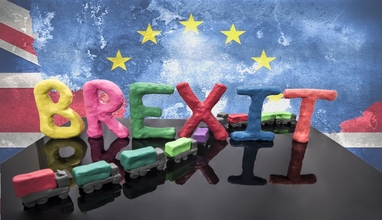Your First Steps to Selling Online in Germany: A Legal Compliance Checklist for 2025

Selling online in Germany offers great opportunities, thanks to the country’s strong economy and highly digital-savvy consumers. But with opportunity comes responsibility. Germany has some of the strictest e-commerce laws in Europe, and compliance is not optional. If you're launching your e-shop in 2025, here’s a practical legal checklist to help you stay on the right side of the law—and build trust with your German customers from day one.
1. Impressum (Legal Notice): Mandatory and Visible
In Germany, all websites—including online stores—are required to have an Impressum (legal notice). This page must include:
- Your full name or company name
- Business address
- Contact information (email and phone number)
- Trade register number (if applicable)
- VAT ID number
- Name of the legal representative
Failure to provide a proper Impressum can lead to warnings (Abmahnungen) and fines.
2. Data Protection and GDPR Compliance
German consumers are particularly sensitive to data privacy, and GDPR (General Data Protection Regulation) is rigorously enforced.
Your website must include:
- A clear and accessible Privacy Policy (Datenschutzerklärung)
- Information about what data is collected and why
- Cookie consent banners that comply with EU guidelines
- Secure handling of customer data (SSL encryption, secure checkout, etc.)
3. Terms and Conditions (AGB): Recommended for Clarity and Security
While AGB (Allgemeine Geschäftsbedingungen) are not legally required, they are strongly recommended. These outline:
- Conditions of purchase
- Delivery times
- Return policies
- Warranty rights
- Payment options
Having well-written terms can protect you in case of disputes and clarify expectations for buyers.
4. Right of Withdrawal (Widerrufsrecht): Clearly Defined
Under German and EU law, consumers have a 14-day right of withdrawal for most online purchases.
You must provide:
- A clear cancellation policy
- A model withdrawal form (you can use the EU template)
- Information on how and when customers can return goods
- Reimbursement timelines and conditions
Not informing buyers properly about their rights can result in legal penalties.
5. Product Descriptions and Pricing: Transparency is Key
Your listings must be truthful, complete, and legally compliant. This includes:
- Accurate product descriptions (especially for food, cosmetics, electronics, etc.)
- Total prices including VAT (and shipping, if applicable)
- Unit pricing (e.g. per kg, liter) for certain product categories
- Clear indication of shipping costs and delivery times before checkout
Misleading information can lead to consumer complaints or legal action.
6. Packaging and Recycling (LUCID Registration)
If you send products to German customers, you're responsible for the packaging waste. You must:
- Register with the LUCID Packaging Register (Zentrale Stelle Verpackungsregister)
- Join a dual system (for recycling contributions)
- Label packaging properly
This applies to businesses of all sizes—even small sellers on platforms like Etsy or eBay.
7. Platform-Specific Rules (If Using Amazon, Etsy, etc.)
Many German sellers use marketplaces like Amazon.de, eBay.de, or Etsy. These platforms also enforce compliance and often require:
- Proper documentation (tax IDs, trade licenses)
- Compliance with the German Supply Chain Due Diligence Act (for larger sellers)
- Fulfillment in accordance with German consumer laws
It’s important to align your store’s policies with the platform’s terms and legal standards.
Conclusion: Start Smart, Stay Legal
Selling online in Germany can be highly rewarding—but only if you take compliance seriously. Starting with this checklist, you can ensure your e-commerce business meets legal requirements, builds consumer trust, and avoids costly penalties.
For extra peace of mind, consider working with a legal advisor or using legal text generators tailored to German law (such as Trusted Shops or Händlerbund).
In 2025, legal clarity is not just a requirement—it’s a competitive advantage.
Hits: 9876 | Leave a comment



 Rules for EU_m.jpg)















